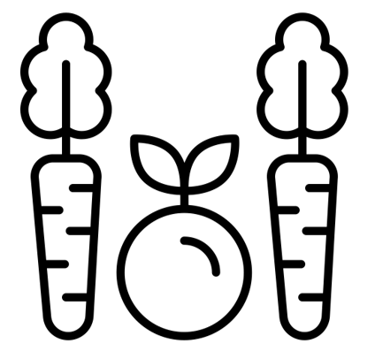Menopause: what dietary strategy?


By altering a woman's hormonal balance, menopause also changes the way her body functions
From a physiological point of view, menopause is the depletion of a woman's ovarian capital: her oocytes die, and she no longer ovulates, which leads to a drop in her levels of the female hormones estrogen and progesterone.
The menopause is preceded by a period of perimenopause, consisting of phases of hyperestrogenism, with migraines, irritability and heavier periods, and phases of hypoestrogenism, with hot flushes, depression, and lighter periods.
At menopause, a woman's hormonal balance is similar to that of a man. Bone and lipid remodelling are observed. There is more bone degradation, and thin women are more exposed to osteoporosis. There is also atrophy of the genital and urinary mucosa, with an increased risk of cystitis. Finally, triglycerides and cholesterol levels in the blood increase, raising cardiovascular risks.
Perimenopause and menopause bring a clear need for dietary adaptation to reduce symptoms:
In perimenopause, it's a good idea to place even greater emphasis on vegetables and fruit, to limit or stop eating meat in favor of fish, to avoid alcohol and coffee, to consume more pre- and probiotics and to support liver detoxification, particularly with cruciferous vegetables. Magnesium intake is particularly important, and it's also a good idea to check your intake of B vitamins (especially B6), vitamin D, zinc, and iodine. If this is not enough, phytohormones can be considered, provided you can identify whether you are hyperoestrogenic (in which case you should opt for phytoprogestagens) or hypoestrogenic (in which case you should opt for pro-oestrogenic phytoestrogens).
In menopause, it's a good idea to follow the same dietary protocol as in perimenopause, and to pay attention to the nutrients required for bone health. You should also be aware and accept, as far as possible, that menopause encourages weight gain, notably because the metabolism slows down and because the body seeks to promote estrogen production by adipose tissue.
In addition to dietary adaptation, there is a debate as to whether or not menopausal women should take hormone replacement therapy (HRT). In my view, this is a personal choice in terms of the balance between comfort and risk. What's more, every organism and therefore every woman reacts differently, and what's best for one is not necessarily what's best for another:
For those who opt for HRT, I recommend taking it continuously, with estrogens transdermally, accompanied by progesterone vaginally, and decreasing doses with age and in the event of breast tension. An increased risk of breast cancer, heart attack, stroke and pulmonary embolism has been observed. Women who have already suffered from hormone-dependent cancer should not take HRT.
For those who opt for phytoestrogens (combined with phytoprogestagens), advice is needed to identify the best possible choices. There are several parameters to consider. For example, natural soy is less effective than fermented soy, but fermented soy increases the risk of stomach and colon cancer, and some women may experience side effects such as constipation and nausea. There are also drug interactions, and some people are allergic to soy protein. As a precaution, women who have already suffered from hormone-dependent cancer should not take phytoestrogens.
To reduce the risks associated with taking estrogens, whether HRT or phytoestrogens, you need to support their catabolism by the liver, especially the so-called conjugation stage. This can be achieved by eating cruciferous vegetables (broccoli, cabbage), artichokes, dandelion, turmeric, rosemary, green tea, and so on, and ensuring adequate intake of magnesium and B vitamins. Aspirin and pepper, which inhibit this conjugation, should also be avoided.
To find out more, also read these articles:
On the mechanisms involved in weight gain: https://isabellemaesnutrition.com/en/weightgain
On fasting, a practice that can help you reset the way you eat: https://isabellemaesnutrition.com/en/fasting
On the issues of industrial foods compared to a natural diet: https://isabellemaesnutrition.com/en/processed-foods
On the concept of glycemic index, its role and how to modulate it: https://isabellemaesnutrition.com/en/glycemic-index
On how to broaden the range of foods that have a place in a healthy diet: https://isabellemaesnutrition.com/en/forgotten-foods
Picture of chopping herbs by Alyson McPhee
